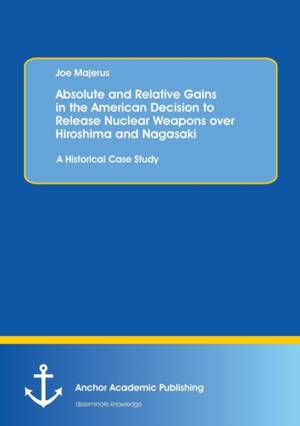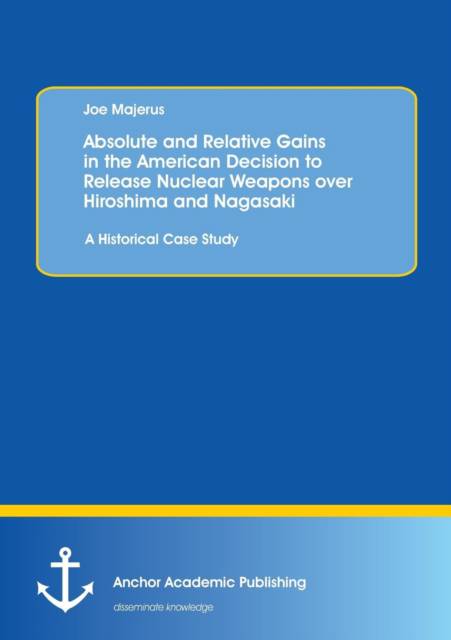
- Afhalen na 1 uur in een winkel met voorraad
- Gratis thuislevering in België vanaf € 30
- Ruim aanbod met 7 miljoen producten
- Afhalen na 1 uur in een winkel met voorraad
- Gratis thuislevering in België vanaf € 30
- Ruim aanbod met 7 miljoen producten
Zoeken
Absolute and Relative Gains in the American Decision to Release Nuclear Weapons over Hiroshima and Nagasaki
A Historical Case Study
Joe Majerus
Paperback | Engels
€ 49,45
+ 98 punten
Omschrijving
The question of whether states pursue absolute or relative gains has divided neo-realism and neo-liberalism for quite some time now. Thus whereas neo-realists contend that states seek comparative advantages relative to others, neo-liberal scholars argue that they are primarily interested in absolute individual gains. In applying social-constructivist ideas, however, this book will demonstrate that such a preference for relative or absolute gains is not naturally predetermined, but inextricably linked to the continual 're-construction' of states' national identities and interests. By analyzing the Truman Administration's decision for using nuclear weapons against Hiroshima and Nagasaki, this case study will show that American leaders were much more preoccupied with achieving absolute rather than relative gains. Such absolute considerations were influenced by the pressures of an anarchic self-help system, specific domestic imperatives and the personal views of individual policy-makers who believed that only swift socio-economic recovery and the creation of a more peaceful security environment would ultimately ensure their country's long-term international position.
Specificaties
Betrokkenen
- Auteur(s):
- Uitgeverij:
Inhoud
- Aantal bladzijden:
- 76
- Taal:
- Engels
Eigenschappen
- Productcode (EAN):
- 9783954893508
- Verschijningsdatum:
- 28/01/2015
- Uitvoering:
- Paperback
- Formaat:
- Trade paperback (VS)
- Afmetingen:
- 148 mm x 210 mm
- Gewicht:
- 108 g

Alleen bij Standaard Boekhandel
+ 98 punten op je klantenkaart van Standaard Boekhandel
Beoordelingen
We publiceren alleen reviews die voldoen aan de voorwaarden voor reviews. Bekijk onze voorwaarden voor reviews.











